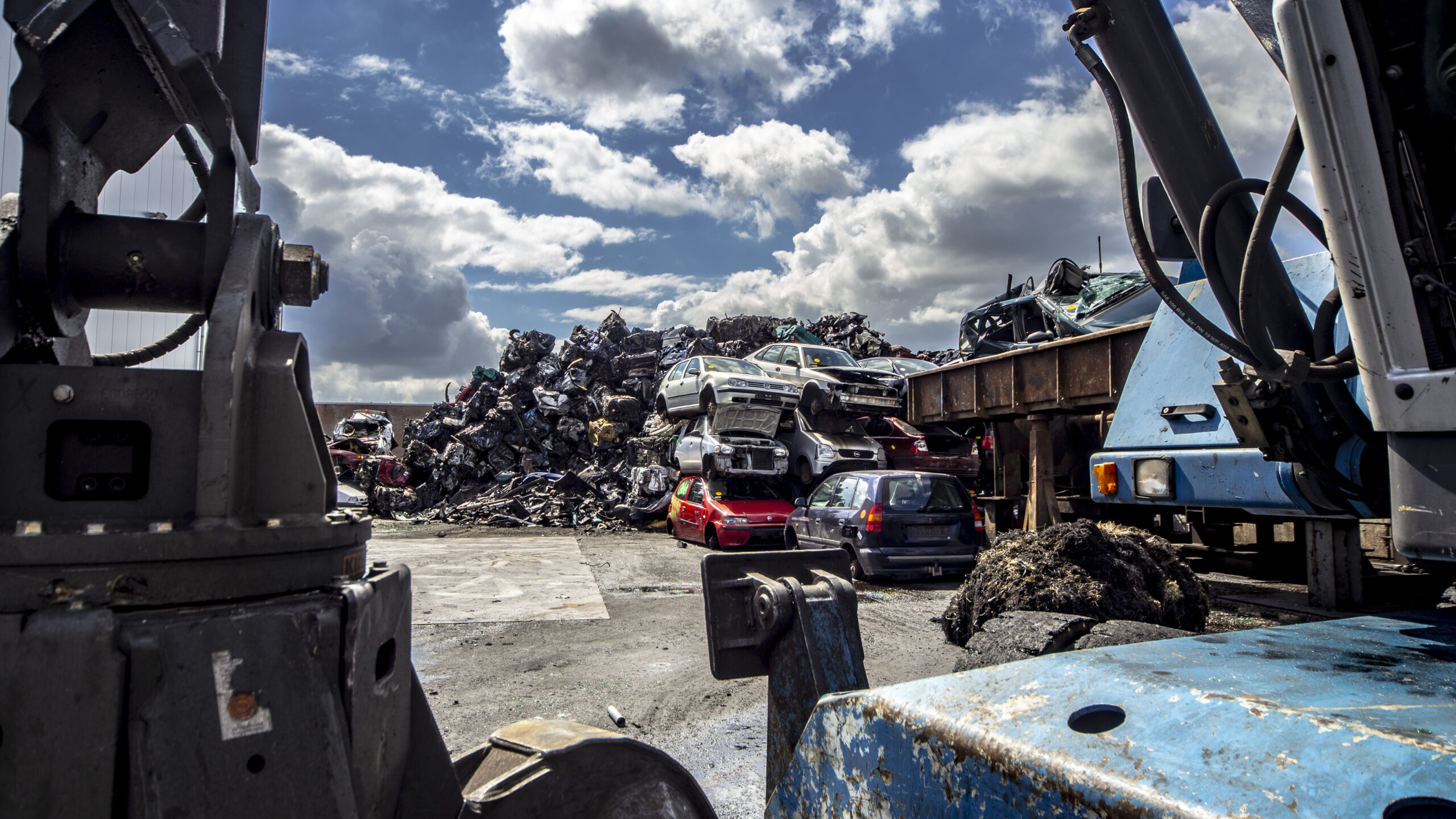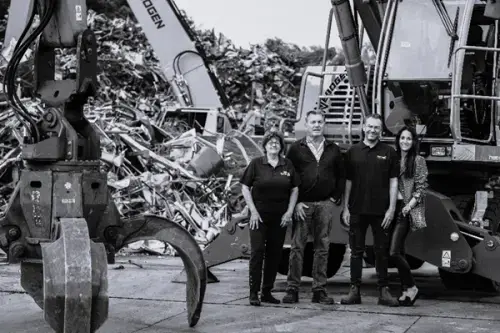
Kuijpers Autorecycling & Onderdelen
Ijzersterk in Recycling
Dedication guides Kuijpers Metaal- & Autorecycling through the coronavirus crisis
The coronavirus measures are not only affecting local and national businesses, but also have an impact on global trade. Kuijpers Metaal- & Autorecycling experienced this during the first weeks after the severity of the coronavirus was announced. Driven and full of perseverance, Mark Kuijpers is working to keep his business going and retain his staff. In addition, his company takes the environment into account by recycling more than 97% of its products.
The family business Kuijpers Metaal- & Autorecycling has been located at Liesselseweg 214 in Deurne since 1987. Louis and Mieke Kuijpers set up the company at the time, and in 2017 their son Mark took over the management. Mark Kuijpers has been working in the company since he was sixteen. In the beginning, he worked and went to school one day a week. At eighteen, he was allowed to drive the truck, which he did for ten years. Meanwhile, Mark was given more and more tasks at the yard to prepare him for the takeover. In 2014, they also opened a branch in Beringe, Limburg. Things did not go so well with scrap metal there, so Kuijpers Metaal- & Autorecycling started to focus more on dismantling cars.
Trade collapsed
When the coronavirus measures were first announced, Mark wasn't particularly concerned. “It won't be so bad,” was his initial thought. However, after three weeks, it became clear that it was not so bad. “You heard that many people were being admitted to hospitals, and trade collapsed,” he adds. Kuijpers Metaal- & Autorecycling was therefore forced to close its private collection of scrap metal. “It seemed as if everyone was cleaning up and it was extremely busy, while we couldn't dispose of it,” says Mieke Kuijpers. This was because Kuijpers Metaal- & Autorecycling is 75% dependent on exports, which means that they ship scrap iron and metals abroad. Turkey in particular is a major customer because it has the largest smelting furnaces in the world. Since many countries were in lockdown, it was not possible to ship the metal.
NOW scheme
Like many other companies, Kuijpers Metaal- & Autorecycling has made use of the NOW scheme. They have 21 employees and would like to keep them. The Temporary Emergency Measure for Bridging Employment (NOW) allows companies to continue paying their staff during the coronavirus crisis if their turnover has fallen by at least 20% over a number of months. They must also meet the other conditions set out in the scheme. “We only did this the first time, because it has to be repaid,” say the entrepreneurs. Mark now indicates that the ironmongery is doing well enough again to be able to handle the payments themselves, so they are not dependent on the repayment of the NOW scheme.
Recycling
At Kuijpers Metaal- & Autorecycling, they recycle 97% of all the scrap metal they purchase. In the case of car recycling, this figure is even higher at 98.4% of the weight. For example, if a car weighs 100 kilograms, less than two kilograms remain that they cannot use. The ARN trade association is committed to achieving 100% recycling and is investing in this goal. All metal and cars that arrive at Kuijpers are first sorted and processed before being sold to intermediaries. The sold metal is then transported by truck to the port. This can be in Antwerp, Amsterdam, Rotterdam, or Dordrecht. There, all the metal is loaded onto a seagoing vessel. “Each ocean-going vessel can hold fifty thousand tons of metal,” says Louis Kuijpers. That's 50,000,000 kilograms per ship. “In theory, that's the iron we collect in two and a half years,” adds Mark. Finally, the recycled metal is melted down into new usable metals.
Adjusted prices
After the initial shock and closure to private individuals, exports resumed in mid-April. “This was necessary because companies need income to survive,” says Mark. Private individuals were also able to return to Kuijpers Metaal- & Autorecycling. “It wasn't as crazy as it was in the beginning; people weren't all coming at once,” says Mieke Kuijpers. The prices of iron had been adjusted in the meantime. “But trade picked up again and we were able to keep our staff,” Mark says with satisfaction. In addition, they are taking the coronavirus measures into account. They ensure that people maintain a distance of 1.5 meters from each other, and staff breaks are now divided into groups.
Waste will continue
Despite the threats of a second wave of coronavirus, Mark Kuijpers is convinced that his business will be fine: “Waste will always be generated.” He is therefore convinced that things will be different than during the first wave. “They can't shut everything down again; that's not feasible and unaffordable,” Mark believes. He does realize, however, that it will take years for the economy to recover. “People are mainly afraid and are therefore putting the brakes on,” he adds. Although he has noticed many differences in how people dealt with the coronavirus. “My experience is that in the beginning, many people in the risk group thought it wasn't so bad, and it was mainly young people who complied with the measures at the time,” he says. It is now known that it is mainly young people who are most infected.
Photos: Josanne van der Heijden

